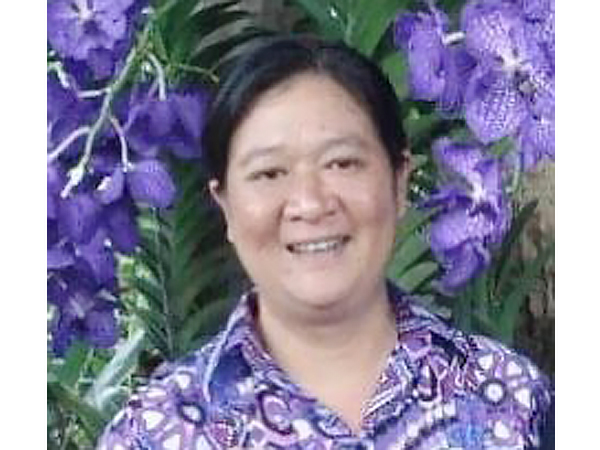CCA mourns passing away of Aye Moe Tin, former member of CCA presidium

Aye Moe Tin, a former President of the Christian Conference of Asia (CCA), passed away on 24 January 2022 in Yangon, Myanmar. A member of the Thanlian Baptist Church in Myanmar, she was active in the Thanlian Council of Churches in the Thanlian region.
She was 51 years old and had been unwell for some time due to stomach cancer.
A civil engineer by profession, Ms Moe Tin worked at the Thilawa harbour. Ms Moe Tin was actively involved in the ecumenical student and youth movement in Myanmar through the Myanmar Council of Churches in the 1990s.
She was a youth delegate from the Myanmar Council of Churches to the 9th General Assembly of the CCA held in Colombo, Sri Lanka, and was elected to the Presidium of the CCA as a representative of Asian youth at the Assembly for a five-year term until 2000.
Ms Aye Moe Tin was known for her leadership in working among young people in the ecumenical youth movement in Myanmar as well as her talents in conducting cultural performances and stage shows for ‘Mission through Cultural Performances’. She was also passionately involved in doing dialogue with people of other faiths and ideologies.
Expressing condolences to the bereaved family and the Myanmar ecumenical community on the sad demise of Aye Moe Tin, CCA General Secretary Dr Mathews George Chunakara said that she was very passionate about motivating young people for ecumenical programmes in her native land as well as in the Asia region.
The CCA General Secretary, who was the International Affairs and Human Rights Secretary of CCA in the 1990s, recollected his association and work with Ms Aye Moe Tin, especially in the area of human rights and peace in Myanmar. He said that Aye Moe Tin, who was deeply concerned about the deteriorating human rights situation in her country under the military junta rule in the 1990s, had faced numerous difficulties in leaving Myanmar those days for CCA meetings and programmes as the government would not release her passport or grant the required permission for travel overseas which often hindered her active participation in CCA meetings. Despite all such practical difficulties she experienced those days, she tried her level best to contribute to the work of the Asian ecumenical movement.
“Aye Moe Tin will be fondly remembered by many in her native country, Myanmar, as well as in Asia as a whole, for her personal warmth, passion for wider ecumenism, and the commitment she had demonstrated during her youth days in mobilising young people for dialogue with all sectors in a religiously plural and ethnically divided Myanmar,” added Dr Mathews George Chunakara.
Rev. Mahn Palmerston, General Secretary of the Myanmar Council of Churches, stated that Ms Aye Moe Tin had served the Myanmar churches at a historic juncture in MCC’s youth ministry.
She often spent her own money for young people working in the drama team that travelled around the country with the message, “Our faith is not in a God who loves and cares only for Christians, but the God we believe in loves all people on earth,” added Rev. Palmerston, a contemporary of Ms Aye Moe Tin in the Myanmar ecumenical youth movement.
She is survived by two children, her daughter, Min Wei Marar, and her son, Min Wei Thahtar; her husband passed away ten years ago.










